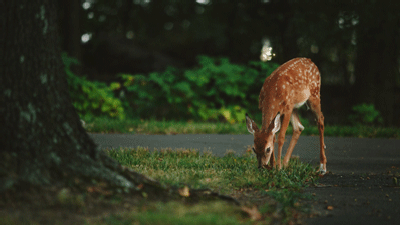BALTIMORE — Each year during the spring and summer months, the Maryland Department of Health (MDH) and the Maryland Department of Natural Resources (DNR) receive reports of captive wildlife situations in which residents attempt to care for or possess wild animals. These attempts are often made with good intentions but pose serious risks to both the animals and humans involved.
Any wild animal, especially young wildlife, should be left alone in their natural environment. It is safe to observe wildlife from a distance, but do not attempt to feed, pet, or rescue any wild animal. Maryland law prohibits residents from possessing certain wild animals, including deer, raccoons, and foxes. Attempting to “rescue” any young wild animal, even those that appear vulnerable or to have been abandoned, risks interfering with the animals’ natural adaptation to their environment and the development of their basic survival skills. Additionally, attempting to care for wild animals potentially exposes caregivers to diseases, including rabies that may cause human illness.
To date, 118 animals have been diagnosed with rabies this year in Maryland, including raccoons, bats, and foxes. All mammals are susceptible to rabies, including wildlife and domestic species such as dogs and cats, though in the U.S., rabies is predominantly seen in wildlife. Wild animals that might be perceived as needing “rehabilitation” may in fact be debilitated due to diseases— such as rabies.
Maryland residents are advised to stay away from wild animals due to the significant associated risks. If residents encounter a sick, injured, or nuisance wild animal, they should:
•Maintain a safe distance and do not attempt to touch, pet, or feed the animal.
•Do not “rescue” or relocate wildlife.
•Contact a licensed professional to handle the situation and report the instance to DNR or the US Department of Agriculture (USDA).
DNR can be reached between 8 a.m. and 4:30 p.m., Monday through Friday, by calling 410-260-8540 and the USDA Wildlife Services can be reached by calling 1-877-463-6497.
